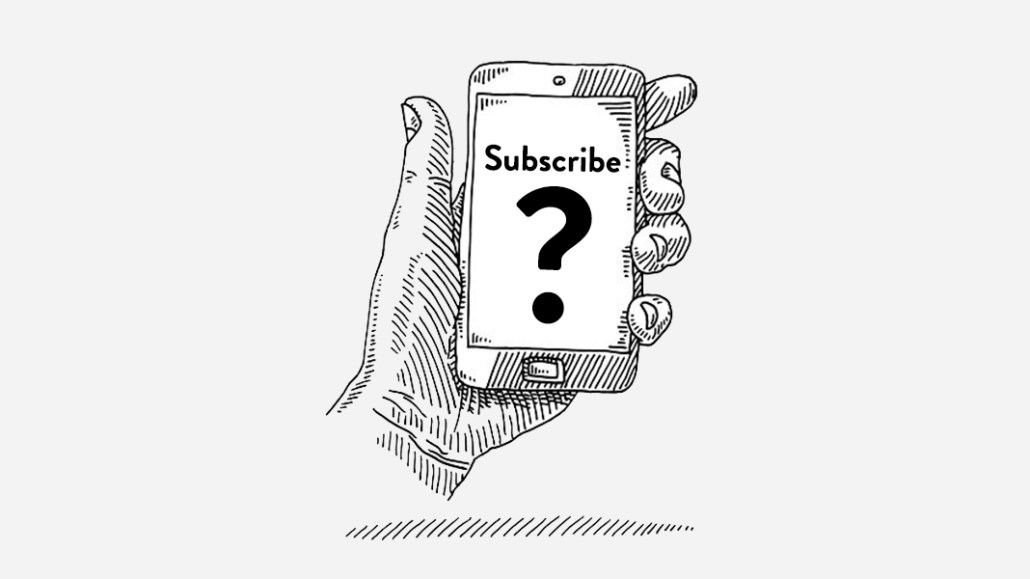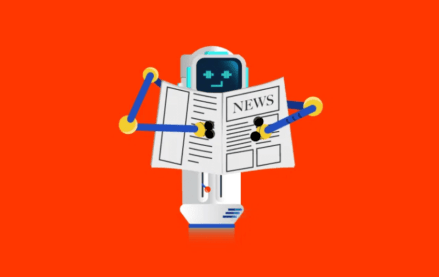‘You can’t just pivot into a subscription’: Overheard at the Digiday Publishing Summit

These are tough times for digital publishers as they look for ways to diversify their revenue, with Google and Facebook eating up the lion’s share of online advertising. At the Digiday Publishing Summit in Vail, Colorado, publishers shared their biggest challenges in branching out. Our events operate under the Chatham House Rule, which means all discussions are on the record, only without attribution of names and companies. Here’s a sampling of what people said about the shift to reader revenue, platforms and video:
Pivoting to subscriptions is hard
“You have to figure out who’s going to own subscriptions in your organization. Can your design team build a paywall? There’s an operational cost you need to take into account.”
“You can’t just pivot into a subscription. It’s a long, slow road to grow into a product and experience that’s good enough for readers to pay you anything.”
“Our subscription revenue is higher than our ad revenue — and both are growing double digits this year. But we are reaching a point with [the growth of] our subscription product where we either need to grab a greater share of wallet from existing subscribers, or we have to pivot into new markets.”
Commerce isn’t an easy flip of a switch
“You do need to think more like a merchant because the more merchandising expertise you have, the closer you can get commerce into being a meaningful line of revenue. It’s not as simple as slapping products up and hoping they sell.”
“If Amazon has [the product], we’re not going to touch it. We need to be one of the only companies on the internet that has that product. Our success is all off of our niche.”
There’s no love for or from Facebook
“We actually had an account manager and got dropped by them. Between how much we spend with them and how much we monetize on the [Facebook Audience Network] side, the fact that we can’t get an account rep just to answer questions is kind of ridiculous — but that’s Facebook.”
“Part of the reason we diversified to not rely on Facebook as much: These platforms change things up so much at any point, the more you do different things, the better.”
“We joke internally that now our traffic diversification looks a lot better because Facebook went down.”
Apple News is no savior just yet
“Right now, it’s purely a brand play for us. It helps us say we have more reach, and the editorial team loves it, but it hasn’t added to the bottom line in any way yet.”
“The tech lift and operational challenges of monetizing the platform is probably the biggest hurdle.”
“An Apple News rep told us that the RSS feed is kind of dead to them. We built custom integration of the WordPress plugin, so all of the articles are auto-syndicated into it. We were fortunate because they reached out to us. The rep told us that using their format is definitely preferred by them.”
“There are two people running publisher partnerships for everybody. So you almost have no possibility of inclusion in there. We were told that if you have a calendar planned out for the next year, that’s the best way to get inclusion and get bumped up by Apple News.”
“They gave us no performance data, no targeting data. I’m going to wait until someone I trust says they’re making a ton of money before I put a ton of energy back into it.”
The video landscape is confusing
“We recently have been approached by MSN, [which has] 500 million uniques worldwide and 120 million uniques in the U.S. Who still uses MSN?”
“Does video header bidding actually work? Some vendors say yes and some vendors say no — and I have no idea.”
“We just have to set expectations. If you want to be on the top 100 sites on the internet, there is only a quantifiable amount of inventory, and it’s not going to be $8 [CPMs].”
More in Media

Podcast companies turn to live events to capture growing advertiser spend
The surge in the number of live podcast events in 2025 reflects a broader shift: advertisers are betting bigger on podcasts — not just as an audio channel but as a full-fledged creator economy play.

Media Briefing: ‘Cloudflare is locking the door’: Publishers celebrate victory against AI bot crawlers
After years of miserably watching their content get ransacked for free by millions of unidentified AI bot crawlers, publishers were finally thrown a viable lifeline.

How Vogue could navigate potential industry headwinds as Anna Wintour — who agency execs say made ad dollars flow — brings on new edit lead
Anna Wintour’s successor at Vogue will have to overcome the myriad of challenges facing fashion media and the digital publishing ecosystem.








